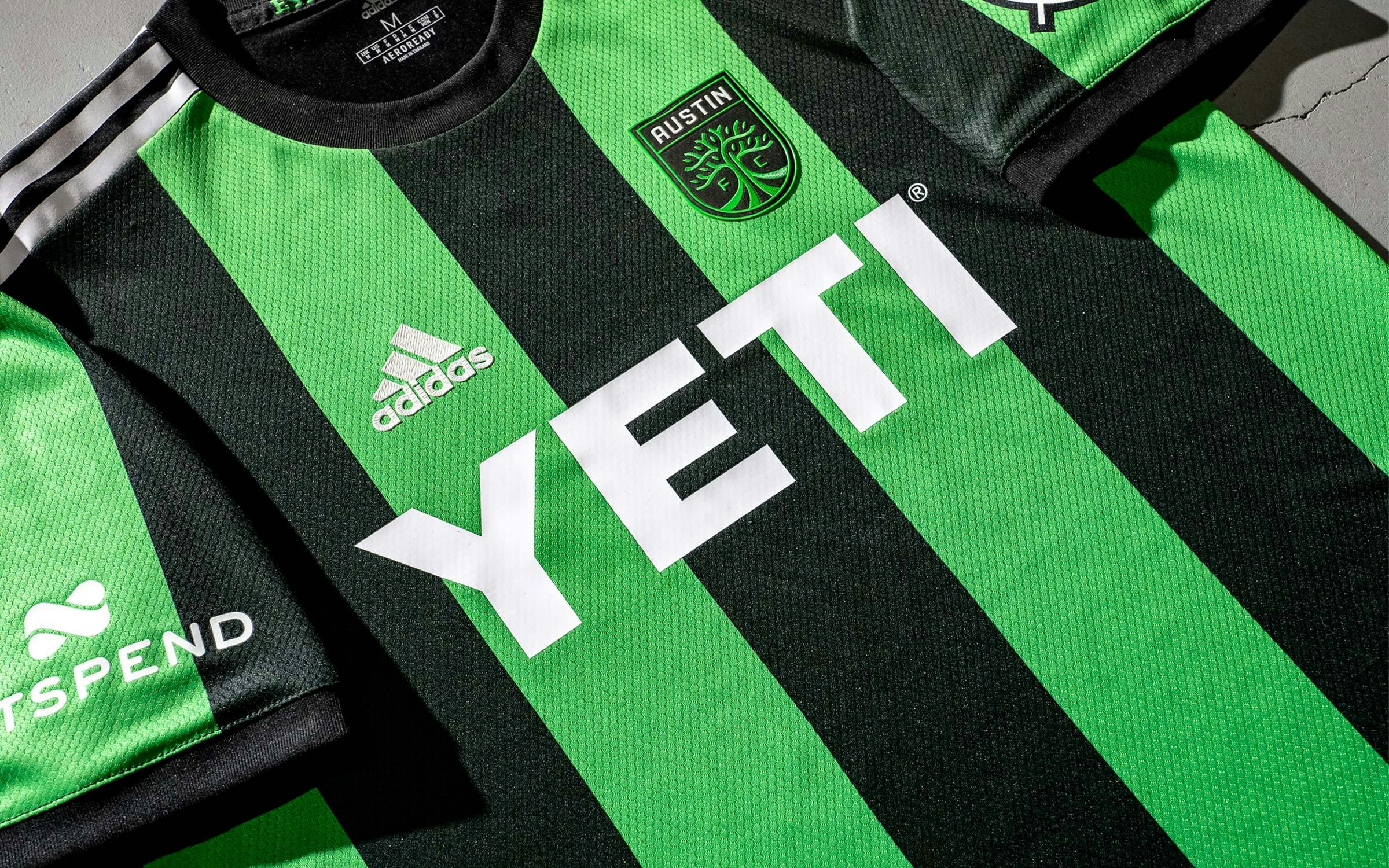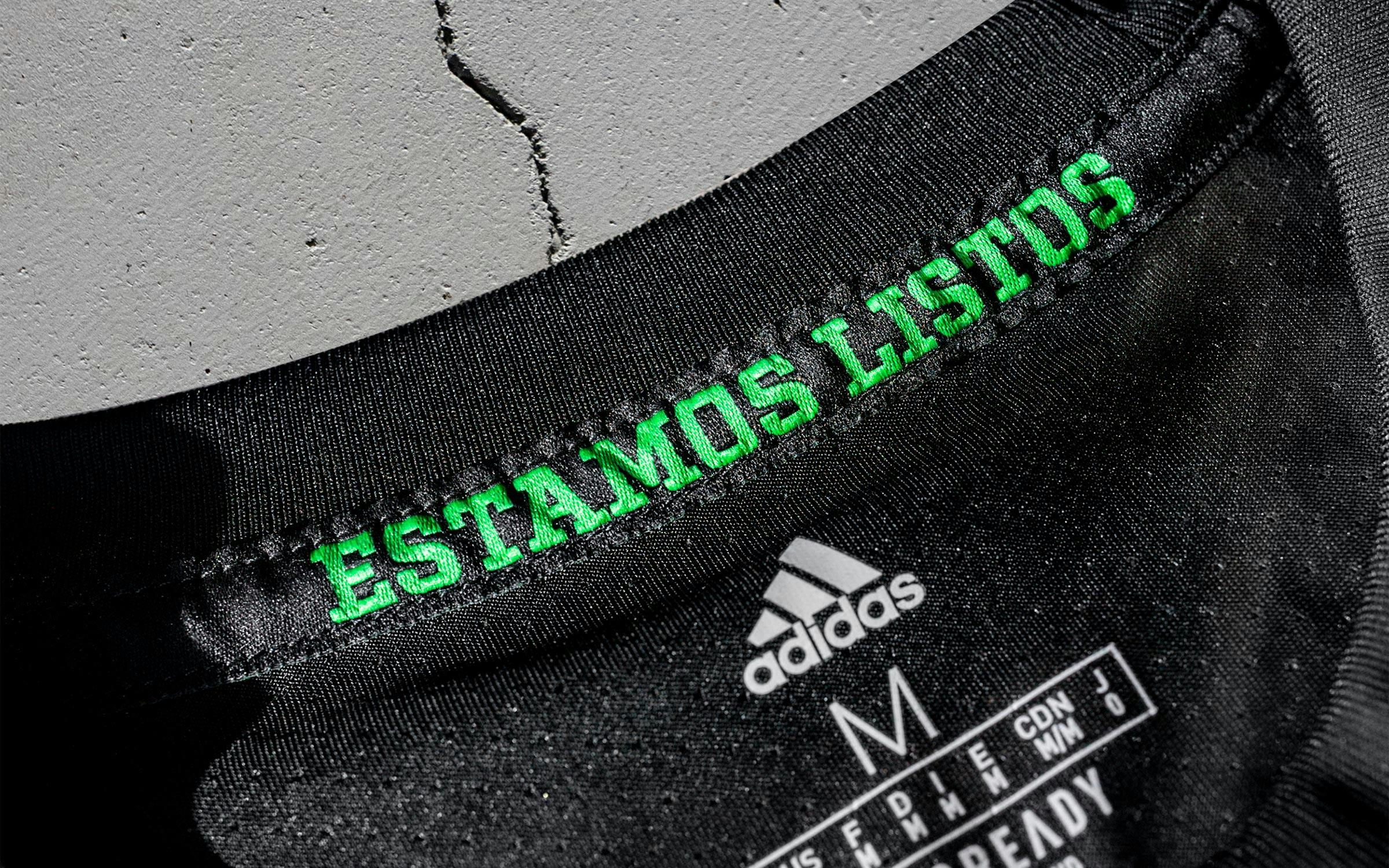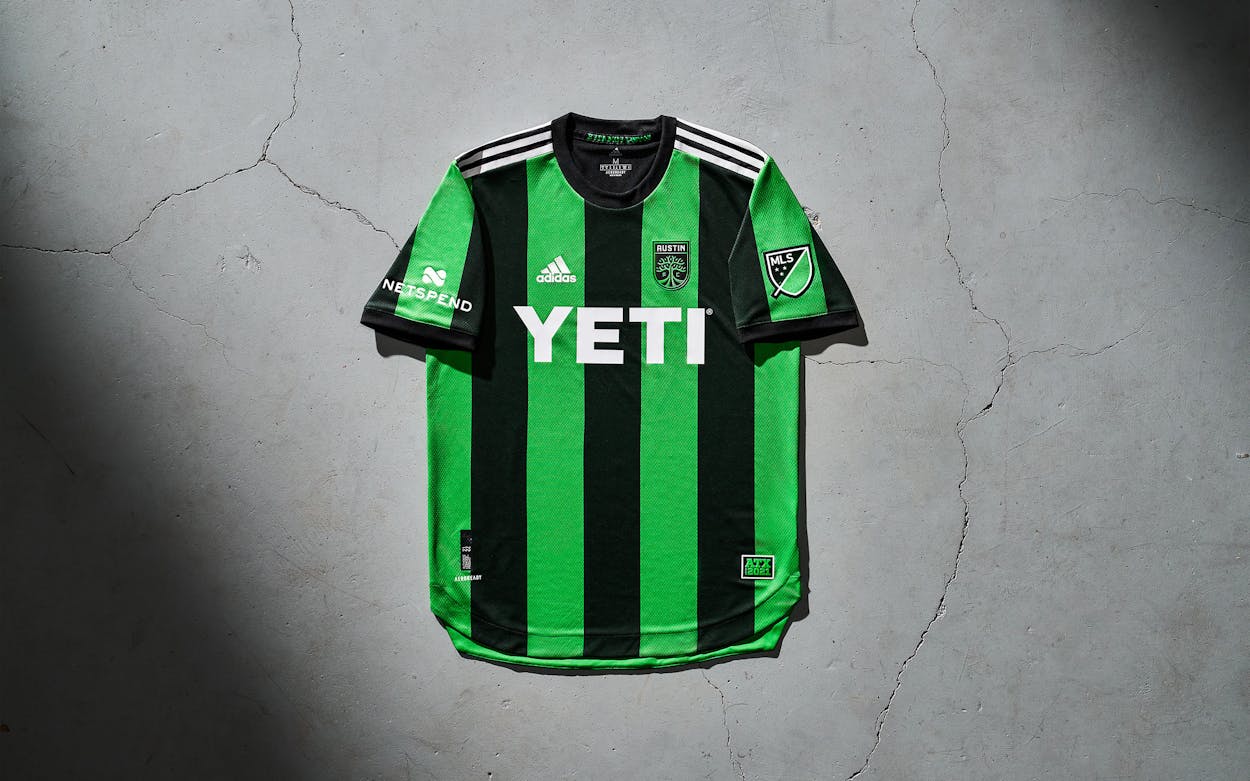Austin is the twenty-ninth largest metro area in the United States, with more than 2.2 million residents. The area’s sports fans have long had limited options: they can root for the Longhorns, even if they don’t have an allegiance to the University of Texas, or they can cheer from afar for a pro team in Houston, Dallas, or San Antonio. The indignity of rooting for a team that represents a different city, when places like Salt Lake City and Buffalo—barely half the size of Austin, and infinitely less cool!—have their own pro teams has done a real number on Austinites’ famed sense of self-importance.
That’ll change in the spring of 2021, when Austin FC—the city’s Major League Soccer expansion franchise—begins play. The city has long flirted with soccer (including hosting lower-level teams like the Austin Bold and Austin Aztex), but that flirtation bloomed into a love affair in 2017 when investor Anthony Precourt, who owned the Columbus Crew MLS team until 2019, set his eyes on Austin.
Precourt’s interest in the city became a subject of controversy—poaching another town’s team isn’t consistent with the capital’s underdog identity. A coalition made up of Austin city leaders opposed to paying for a stadium, Austin Bold owner Bobby Epstein, and Columbus Crew fans who wanted to keep their team came together to challenge Precourt’s plan to move the Crew to Austin. The battle was fought both in city hall and on a PR front, placing various obstacles in front of the club. Proposed stadium sites were scrapped before the team settled on a location near the Domain on the city’s north side; stadium funding was debated, ultimately landing on one of the better recent stadium deals a city has negotiated with a sports team looking to move in; Columbus fans pushed MLS to intervene, resulting in Precourt selling his stake in the Ohio team and being granted the ability to launch an expansion team in Austin instead.
When Austin FC launches, though, Precourt expects that all of that will be prologue to a story about a city that fell in love at first sight with its first pro sports franchise. On Wednesday morning, the team unveiled that “first sight,” giving Austin soccer fans an initial look at the club’s uniforms.

The uniforms feature green and black horizontal stripes, a classic look for a soccer jersey, and display advertiser logos prominently—also a soccer tradition, with Austin-based outdoors brand Yeti occupying prime real estate across the chest (along with local pre-paid debit card company NetSpend on the sleeve, plus Adidas on a smaller chest patch). There’s also a smaller “ATX 2021” near the hem, a three-letter abbreviation familiar to Austin locals that Precourt has decided to embrace.
“Austin is the perfect city for Major League Soccer,” Precourt told Texas Monthly. “It’s young, it’s diverse, it’s creative, it’s family-friendly, it’s Latino—those are all elements of Major League Soccer’s fanbase. The energy of Austin, the creativity, the vibrancy, the confidence—it’s verde, it’s the green that we use. We think it really represents everything about Austin. The black color gives us competitive strength and toughness, and we think they go really well together.”
Major League Soccer doesn’t attract the same outsized attention as the NFL or NBA, but a more, er, artisanal league does fit with Austin’s identity. That’s true, right down to the name of the team, which Precourt acknowledges as “traditional”—but, he says, is part of his vision for introducing the team to the city. “Austin has so many unique attributes, we wanted ‘Austin’ to feature front and center on the crest.”

Still, Precourt and Austin FC face a unique challenge: how do you launch a city’s first-ever pro sports franchise in the middle of a pandemic?
Major League Soccer’s current plan for 2021 is to start the season on time in March. Whether fans will be allowed to attend games remains an open question that the league, appropriately, isn’t prepared to answer at the moment. In normal times, the launch of Austin FC would come with huge fan events, and every milestone—including the launch of the uniforms—would happen in front of a roaring fan base decked out in the same verde-and-black that Precourt hopes will one day fill his stadium. Instead, they’ve been doing virtual events for fans, while the team’s operations staff meets remotely. “I hope that we’re the only team that has to endure launching during a pandemic,” Precourt says. “I hope the good news with vaccines means that we will be. We’ll launch, and then be around for decades to come, so the relationship is growing each day.” In the meantime, he hopes that the jersey becomes “the uniform for Austin,” as the team’s marketing slogan declares, so that when it’s safe to pack a stadium with soccer fans, they’ll be ready to cheer for the team. “Our neck tape will have ‘estamos listos’ on it, which is our script for ‘We’re ready,'” he says. “Despite the pandemic, we’re ready to go.”








